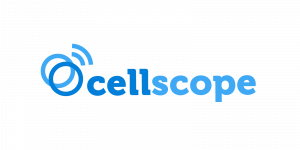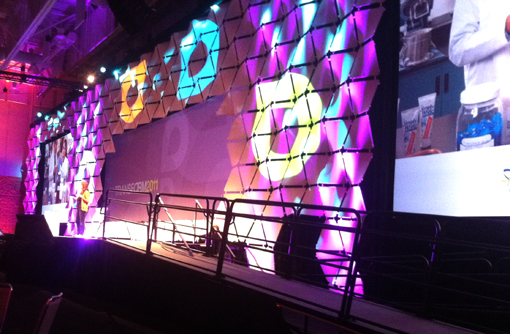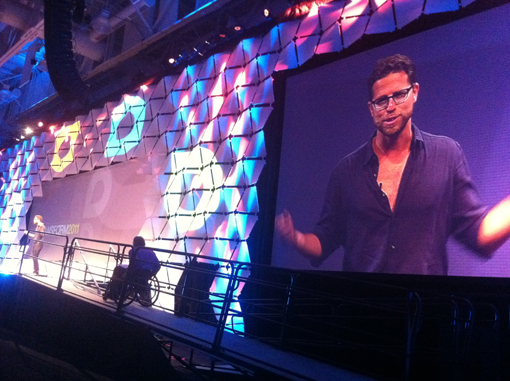Rabble Rousing at the Mayo Clinic (Part 2)
By Leslie
Transform brought together some of the best minds and companies radically changing healthcare through design and technology, including a few Rock Healthers. First up on our dance card: the Incubating Healthcare Panel. Two of our startups, Medibabble and Cellscope, joined Halle to present an overview of their businesses as well as the struggles and opportunities they’ve encountered in the healthcare system.
Medibabble is addressing the language gap between healthcare providers and their patients. No area of the country is immune from this issue, and existing solutions like in house translators and language lines just aren’t scalable. It’s also a huge financial burden for hospitals, as evidenced by San Francisco General’s nearly $2.2 million per year expenditure for their translation needs. Enter Medibabble, who created an on demand, portable, multi-language and low cost solution that is iOs based and perfect for first responders, relief environments and remote monitoring. They’ve had over 15,000 downloads since February of this year, and expect that number to grow exponentially as the number of doctors with iPhones and iPads (already at 75%) continues to climb. The product was created by doctors, out of actual experience while on location in places like Haiti and Ghana where the language divide is great.
New problem: it’s 2am, and Timmy just won’t stop screaming. And the pediatrician doesn’t have any available appointments until Thursday. What’s a parent to do? Cellscope’s smartphone-compatible device turns your iPhone into an otoscope, making it a perfect and flexible tool for tired parents. With the aforementioned limited access to diagnostic tools and physicians, and telemedicine’s dearth of new technology, tying the iPhone to an online platform is the perfect solution to diagnose routine issues like ear infections in 5 minutes instead of an hour long trip. Microscopy is a primary diagnostic tool for diseases like TB and malaria, but hardware and doctors are scarce. The images are clinical-quality, and there is full control over magnification, illumination and image calibration.
Both of these companies have the potential to make radical change by using technology to scale pediatricians and translators. When Q&A opened up, most of the questions revolved around financial models, how the companies would make money and how each entrepreneur planned to break into the fortress-like institutional market to make sales.
Next up was the Rabble Rousers talk on the main stage, featuring up and comers who are coming at problems in health care with guns blazing. First on the docket was Allan Chochinov, a partner at Core77, a New York-based design network serving a global community of designers and design enthusiasts, and Chair of the new MFA in Products of Design graduate program at the School of Visual Arts in New York City. He shared some of the incredible thinking coming out of his design class, including a redesign of the prosthesis, which you can see here. All of his examples reinforced how transformative the thinking of young minds with no medical experience can be.
Halle was the second to come to the stage, and spoke in depth about both the power of outside in thinking, as well as what we’re doing here at Rock Health.
Jay Parkinson was up next, and frankly his presentation warrants a whole entry. Jay is a rare combination of designer, photographer, entrepreneur and doctor. He spoke about starting Hello Health, a small town-style healthcare practice he founded in 2007 with only 10% overhead, and the challenges they encountered. More interestingly, however, was his indictment of medical culture as not only uncreative, but actually anti-creative. He suggested the following as ways to combat the inertia and start making change where it counts, not only out in the field but also with the fledgling doctors in training who aren’t yet accustomed to the broken system.
- Admit that we’re anti-creative
- Teach creativity in med school
- Create ecosystem of support
- Let the young teach the old
- Have a sense of humor and reward innovation
- Gather the innovators
- Talk about fears
- Accept more leaders
You can view all of the presentations in their entirety here.


